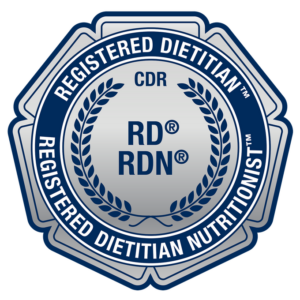There’s a lot of noise out there about whether one should drink cow’s milk, also known as dairy. This article will not favor or debunk any information. Instead, this article will inform you about dairy and several dairy alternative kinds of milk. You can make the informed decision whether to dairy…or to non-dairy.
There are several reasons one may look for alternatives to dairy. The most important being an IgE allergy to the casein or whey protein in cow’s milk. A dairy alternative could be life-saving. Whereas lactose intolerance is not life-threatening, but it can leave you with the feeling of reflux, bloated, or diarrhea. Lactose is the carbohydrate found in milk. An intolerance indicates a lack of the enzyme, lactase, to break down the lactose carbohydrate. Resulting in tummy grumblings. Let’s explore the pros and cons of dairy milk and other non-dairy alternatives.
Cow’s Milk
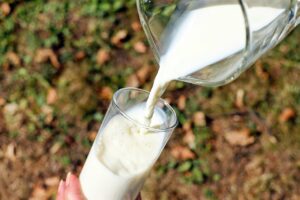
Pros of Cow’s Milk
- Provides a good source of calcium (25-30%) per serving and is well absorbed
- The fat source aides in the absorption of Vitamin D in cow’s milk
- Provides 8 grams of protein per 8 ounce serving
- Carbohydrate is natural, with no added sugar (unless flavored)
- Lactose-free options are available
Cons of Cow’s Milk
- Not conducive to a Vegan lifestyle
- Not ideal for lactose intolerance or milk allergy
- Could affect skin conditions
To Non-Dairy
The grocery cooler section has an array of non-dairy milk alternatives. Soy, almond, cashew, pea, coconut, rice, oat, and flax milk to name a few. The main pro is they are all suitable for the Vegan lifestyle. The caution is if there is an allergy to any of the non-dairy base ingredients. In the unsweetened form, they offer low added sugar. Read the labels to identify additives and added sugar content in flavored milk. Let’s explore a few more pros and cons of non-dairy milk alternatives.
Soy Milk
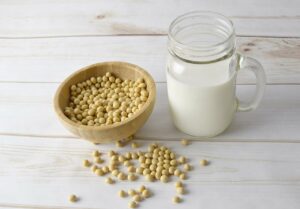
Pros of Soy Milk
- USDA approved as the most comparable in nutrient value to cow’s milk
- Provides 8 grams of protein per 8 ounce serving
- Good balance of nutrients
Cons of Soy Milk
- Ensure that the milk brand is fortified with Calcium and Vitamin D
- Prices vary
- Caution with cow’s milk allergy as many may also react to soy
- Not suitable for a soy allergy
Pea Based Protein Milk

Pros of Pea Based Protein Milk
- Another suitable comparison to cow’s milk
- Provides 8 grams of protein per 8 ounce serving
- Good balance of nutrients
- Fat source is the unsaturated fat and may include Omega 3 fatty acids
- Original formula is unsweetened and lower carbohydrate
Cons of Pea Based Protein Milk
- Not suitable for a pea allergy
- Flavored milk will increase added sugar content
- Higher price
Almond (and other nuts) Milk
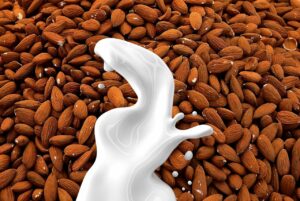
Pros of Nut Milks
- Made by blending nuts with water and filtering out the solids
- Low in calories
- Healthy fat source
Cons of Nut Milks
- Low in protein (1 gram/serving), unless purchasing the protein plus
- Not a natural source of Calcium and Vitamin D
- Not suitable for nut allergies
- Almond and Cashew milk have high Oxalate content, which could impact the absorption of fortified Calcium and increase risk of kidney stones
Coconut Milk
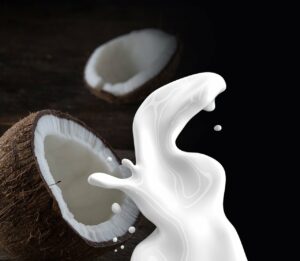
Pros of Coconut Milk
- Canned coconut milk is typically full fat coconut milk and suitable for cooking
- Has a neutral/nutty taste
- Fat content is saturated fat, but medium-chain triglycerides (MCT)
- Good source of vitamins and minerals including potassium, magnesium, and iron
Cons of Coconut Milk
- Not always fortified with Calcium and Vitamin D
- Very low in protein
- Price varies
Rice Milk
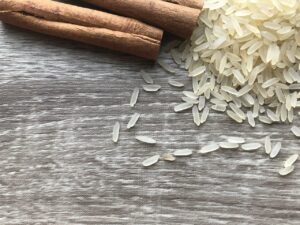
Pros of Rice Milk
- Tastes like Rice Krispies
- Slightly higher in protein than nut milk
- Lower risk of allergy reactions
Cons of Rice Milk
- Higher in simple carbohydrate
- Fat content is from canola oil
- May not be fortified with Calcium and Vitamin D
- Price varies
Flax Milk
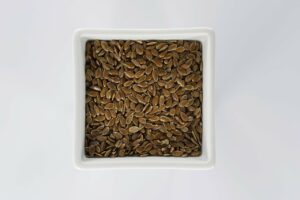
Pros of Flax Milk
- High in ALA Omega 3 Fatty Acids
- Slightly higher in protein than nut milk
- Gluten, soy, and nut-free
- Creamy texture
Cons of Flax Milk
- May not be fortified with Calcium and Vitamin D
- Higher price
Oat Milk
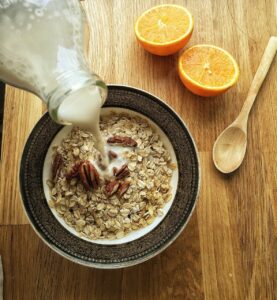
Pros of Oat Milk
- Moderate source of protein per serving (3-4 grams per 8 ounces)
- Quality source of carbohydrate
- Typically certified gluten-free oats
- Lower in allergens and reactions compared to other milk alternatives
- Contains beta-glucans — a soluble fiber that may offer heart health benefits
Cons of Oat Milk
- May not be fortified with Calcium and Vitamin D
- Higher calorie content
- Price varies
In Conclusion, there are many ways to enjoy a white creamy drink. Whether you choose dairy…or non-dairy, ensure there is a Calcium and Vitamin D source. Enjoy experimenting with the tastes of different kinds of milk.
Looking to expand your plant-based food sources? Contact me by filling out the form below to learn about a program that offers nutritional benefits of plants. Plus culinary tips to enhance your cooking skills while cooking and baking with plants and non-dairy milk alternatives.
Get to know you call with Laura Cordero
When was the last time someone listened to you? Really listened and provided active feedback. The best way to see if we are a good fit is in a free introductory discovery session.


